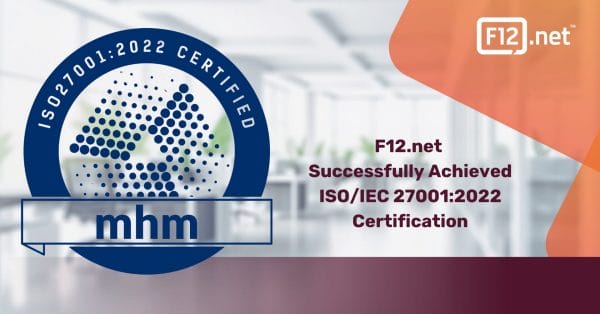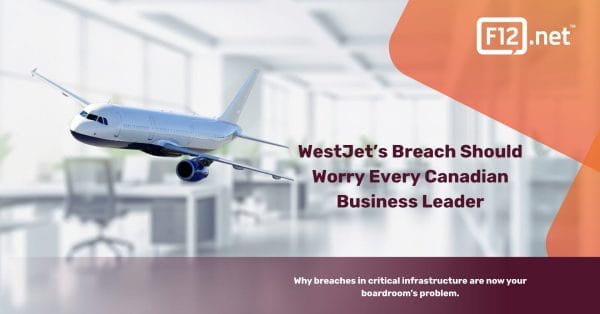When selling your business, you need to know the difference between these two models—and which one a buyer is looking for. Recurring vs. re-occurring revenue is the big question when it comes to preparing for M&A dealings.
Have you been trying to boost the value of your business and prepare it for sale? As a business owner, you need to make sure your numbers add up for the potential buyer. I can tell you from experience as CEO of MBU, which F12 acquired in 2021, that the first thing an interested buyer is going to look at is your recurring vs. re-occurring revenue—and when they do, you better hope your recurring is a whole lot higher than your re-occurring.
What is the difference between recurring and re-occurring revenue?
Recurring revenue is generated by customers purchasing goods or services from you on a regular, predictable, guaranteed basis, like a locked-in contract or a subscription service.
Re-occurring revenue is generated by customers that do have a repeated need to buy what you’re selling, but they purchase it from you on a fairly regular but not guaranteed basis, like getting your usual coffee at the coffee shop near your office.
What’s an example of recurring vs re-occurring revenue?
Let’s take that coffee shop as an example. Let’s say I go to the same coffee shop once a day, five times a week. I pay $2 for my cup of joe every morning. But if, one morning, my wife makes me a latte, I skip the coffee shop. When I work from home, head out of town on business, or go on vacation with the family, those are all days the coffee shop isn’t getting their daily $2 from me. The money I spend at the café is re-occurring, but it isn’t guaranteed.
One day, the coffee shop’s owner reads a great article online about recurring vs. re-occurring revenue and realizes that the recurring model is a perfect and sensible business strategy for her café. She decides to offer her customers unlimited coffee for $15 a week with a locked-in contract good for one year. I sign up because I like the idea of unlimited coffee, but my once-a-day habit doesn’t change all that much. And when my wife makes me a latte, working from home, out of town for business or on vacation? The café still bills me. It doesn’t matter whether I’m drinking the coffee. Now, the coffee shop has turned much of their re-occurring revenue (income from their regular customers) into recurring revenue (coffee subscribers). They know exactly how much they’ll be making in recurring revenue each month, and that predictability is extremely valuable.
So why does M&A only look at recurring revenue?
When a buyer is looking to acquire your business, your recurring revenue enables them to better predict the value of your company. In order for them to offer you a high multiple for the company you sweat blood and tears to build, they’re going to need see a high recurring revenue stream, as well as a high RPU—rate/revenue per user. Your company’s RPU is an important metric when it comes to evaluating your pricing structure, as well as identifying growth patterns. So, for example, if you’re able to bump that $15 per person, per week up to $17, your RPU increases.
Your company’s recurring revenue provides a good indication of future income. James Robertson, a major business transaction attorney, says that with recurring revenue, “the buyer knows both how attrition will impact income, and also how revenue would grow if they increased marketing and found new customers.”
How can I convert my re-occurring revenue to recurring when looking to sell my business?
When it comes to the MSP world, keep these tips in mind when trying to turn your re-occurring revenue into recurring.
Avoid blocks of hours
A service provider should avoid offering their services hourly when at all possible. Let’s say a client agrees to buy 50 hours of your company’s services. When you use up those 50 hours, the client may or may not decide to purchase another 50 moving forward. Or maybe they take a break to see if they can get by without your company. Instead, offer a defined Scope of Work to be performed every month, and outline this in a year- or multi-year-long contract.
Create a standardized, proactive offering
Waiting to hear if a client is going to purchase another 50 hours is reactive. A successful MSP—or any small- to medium-business — needs to be proactive in their approach. Create a package that cover all of your clients’ needs and renews automatically. That way, they’re never left in the lurch, and you’re able to predict your yearly revenue.
It’s never too late to revamp your business model
At MBU, the successful MSP I built over 26 years, we were a bit late to the recurring revenue game. But when I became serious about selling my business, I actively focused on converting the company’s income stream. My team and I managed to convert no less than 50% of our existing clientele into recurring revenue—which ultimately led to a successful acquisition by F12.
Are you looking to sell your business? Do you think the F12 network may be right for you? Contact me today to learn more about mergers and acquisitions. Working together, we can be collectively extraordinary.



